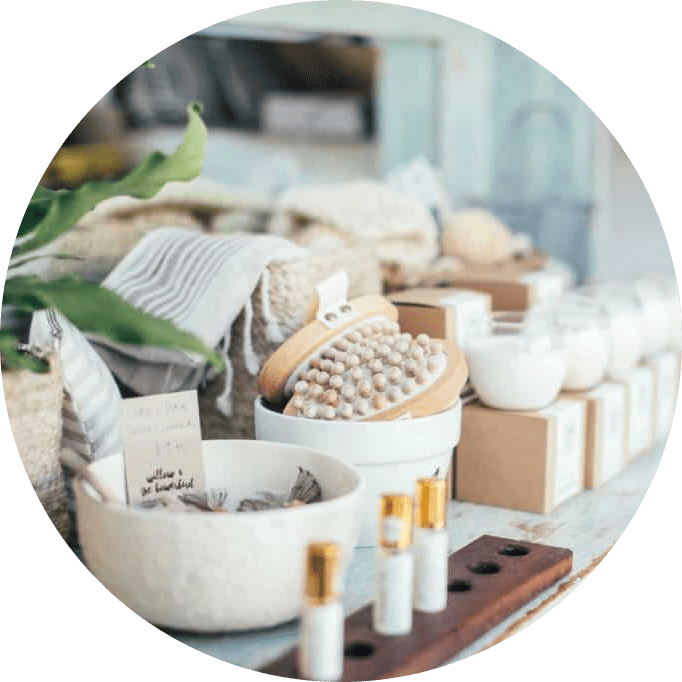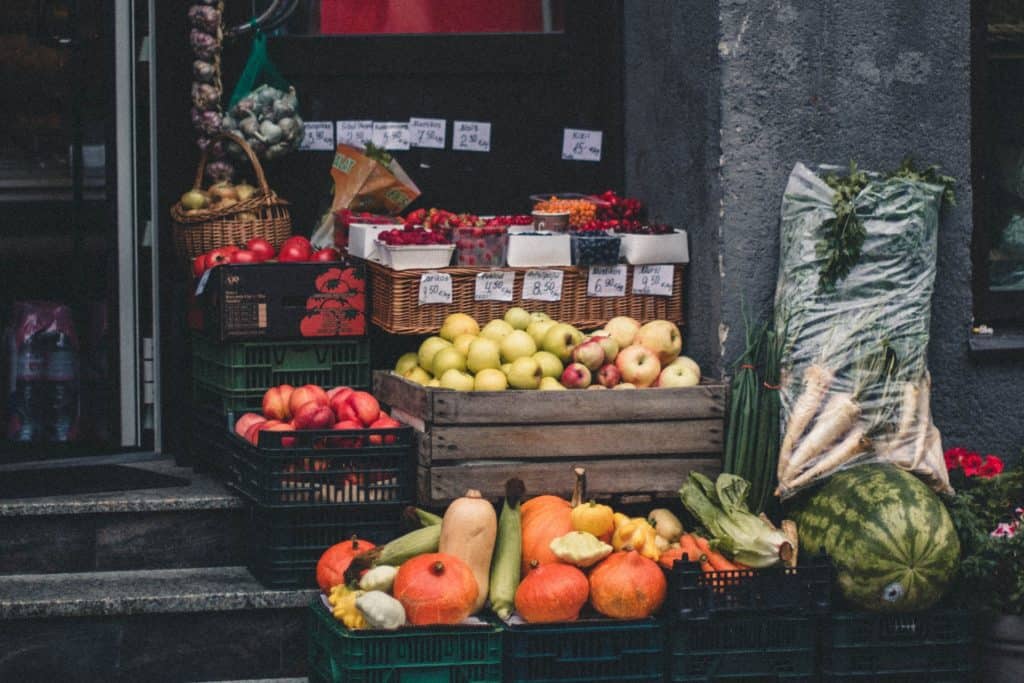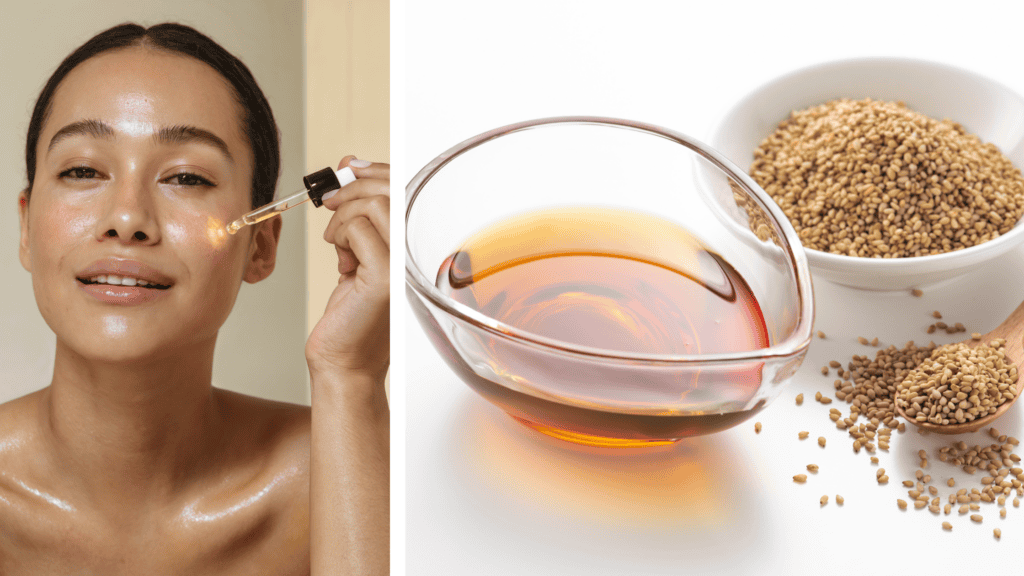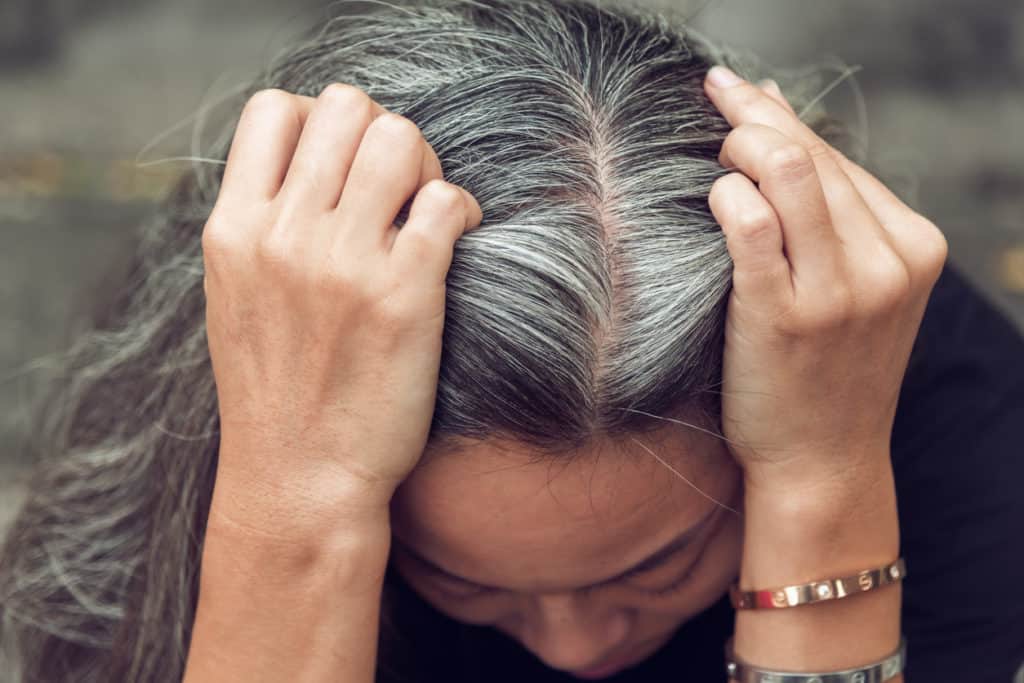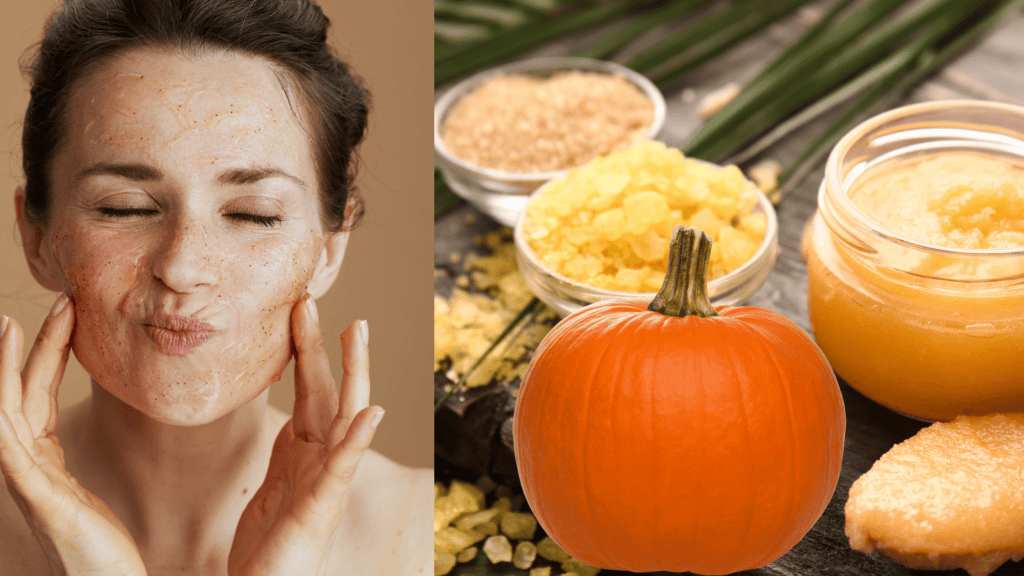If you eat a plant-based diet, you may wonder how to preserve and maintain the collagen levels in your skin. Can you get collagen-enriching foods on a plant-based diet? As collagen starts to decline as we age and due to environmental stressors, it is essential to note a diet rich in abundant plant foods can give you all the nutrients you need for supple skin and healthy hair.
Collagen accounts for 70% of the protein in our skin. It helps the skin retain elasticity and moisture and contributes to healing. Collagen also rejuvenates the hair, is crucial to its healthy growth, and keeps nails strong and healthy.
Getting the collagen support we need when eating a vegan or plant-based diet is possible. While there are many excellent supplements to add to our diets, a diet rich in vegetables, fruits, nuts, seeds, and whole grains, eaten abundantly, can give us all the collagen support we need for supple, firm skin and dense, full hair.

Collagen production in our bodies starts to decline after 25; it is also affected by too much sun exposure, pollution, smoking, excess sugar, and autoimmune diseases. A healthy diet will protect us from free radicals, strengthen our immune systems, and ensure our bodies work and look their best.
What Are The Best Sources Of Plant-Based Food To Promote Collagen Production?
Collagen is a protein, and although our bodies generate collagen, we can support this process by eating various fresh plant-based foods. The best sources of plant-based foods to promote collagen production include;
- Vegetables
- Fruits
- Seeds
- Nuts
- Whole Grains
- Beans

The Best Vegetables For Promoting Collagen.
Make sure to include these vegetables in your diet in abundance, and eat as varied a diet as possible. It is easy to fall into a food rut, consuming our favorites all the time, but try to buy a few different vegetables at a time until you incorporate most of these into your diet regularly.
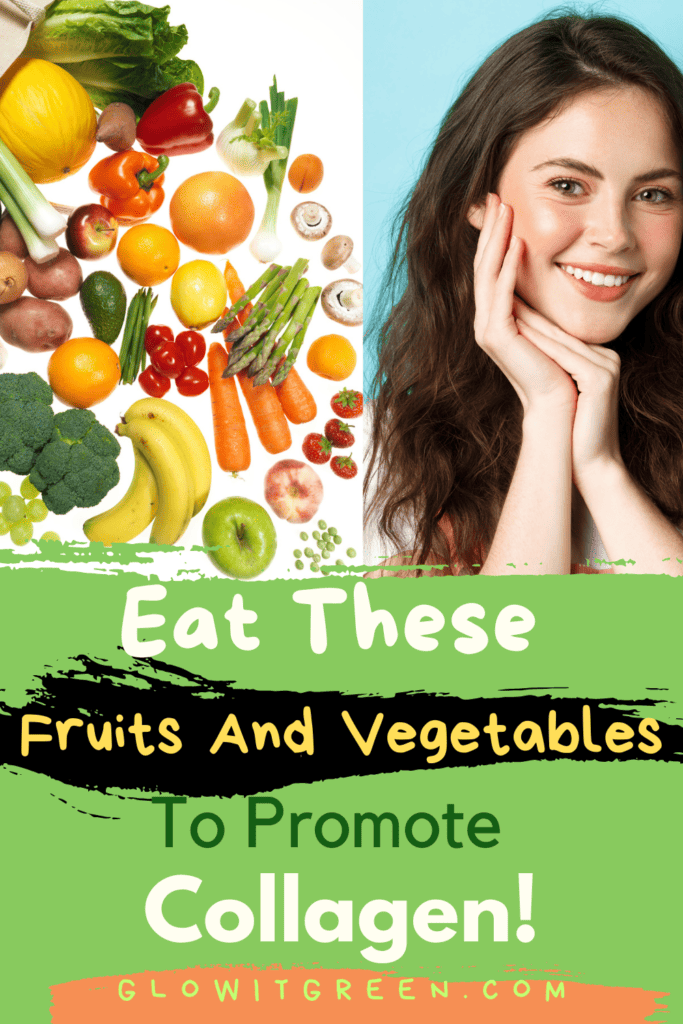
- Broccoli
- Asparagus
- Cabbage
- Brussel sprouts
- Eggplant
- Red pepper
- Kale
- Butternut squash
- Sweet potatoes
- Carrots
- Watercress
- Cucumber
- Shiitake Mushrooms
The Best Fruits To Eat To Promote Collagen.
A diet rich in vitamin C is vital to protect against free radicals that can rapidly age the skin and weaken collagen production. To ensure high levels of this essential vitamin, snack on fruits instead of sugary processed foods. Learning to reach for fruit will hydrate the skin and provide essential vitamins and minerals for better, brighter skin when you crave sugar.
- Citrus fruits
- Kiwi
- Elderberries
- Blueberries
- Raspberries
- Dried Prunes
- Dried Apricots
- Mangoes
- Pineapple
- Strawberries
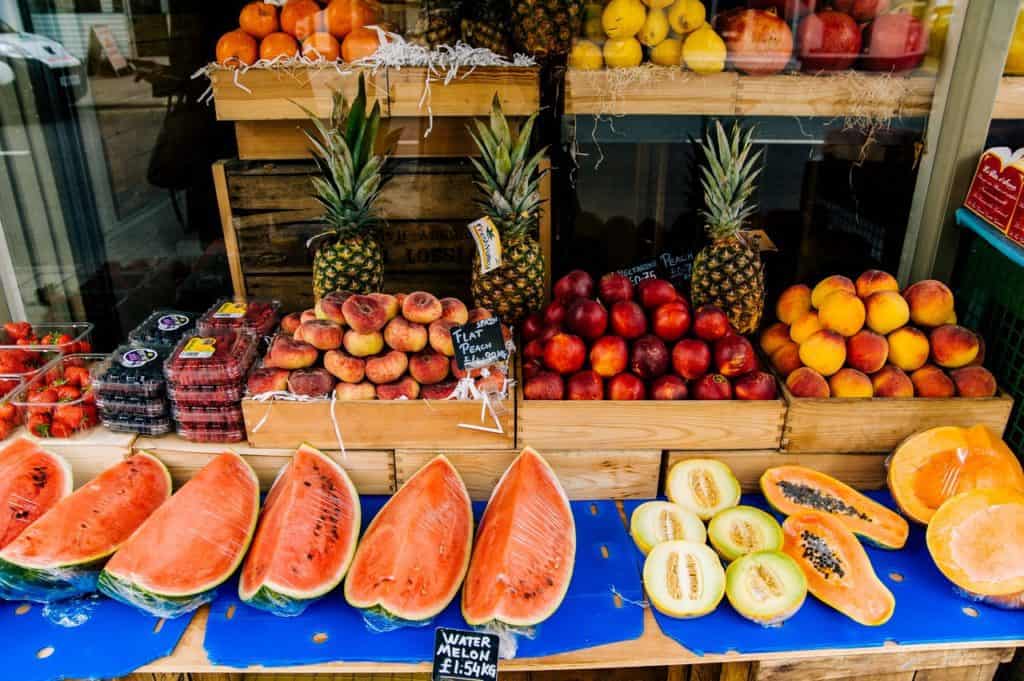
The Best Nuts And Seeds To Eat To Promote Collagen.
Nuts and seeds provide essential protein to support and maintain the collagen levels in the body. Choose a variety of nuts and seeds to add to morning oatmeal, sprinkle onto salads, or eat alone. Aim for at least a small handful daily, providing around 6g of protein.
Glowitgreen uses Amazon affiliate links. If you purchase through these links, we may receive a small commission that doesn’t affect your sales.
- BUY Mustard seeds
- BUY Pumpkin seeds
- BUY Sesame seeds
- BUY Cashew nuts
- BUY Hazel nuts
- BUY Peanuts
The Best Bean Sources To Promote Collagen.
Beans contain around 15g of protein per can, an excellent way to increase your plant-based protein intake. The amino acids from eating beans form the building blocks for increased collagen production.
Eating more beans is easy; make bean dips like Hummus, stuff them into Burritos, eat them on toast, make them into falafel, or eat them as sides. Beans are a nutritious, filling way to get plant protein, add various types of beans to your diet daily, and reap the rewards of younger-looking skin and hair.
- Garbanzo beans
- Lima beans
- Kidney beans
- Black beans
- Tofu
- Tempeh
Grains To Eat For Collagen Production.
Zinc plays an essential role in the formation of collagen. Whole grains are rich in zinc and are integral to maintaining collagen levels as we age. Oatmeal, or wholegrain toast, for breakfast, brown rice or Quinoa for lunch or dinner, with heaps of fresh vegetables and beans, will give you the building blocks to make a healthy plant-based diet that keeps you and your skin and hair alive and vital.
- BUY Quinoa
- BUY Oats
- BUY Wheatgerm
- BUY Wholegrain bread
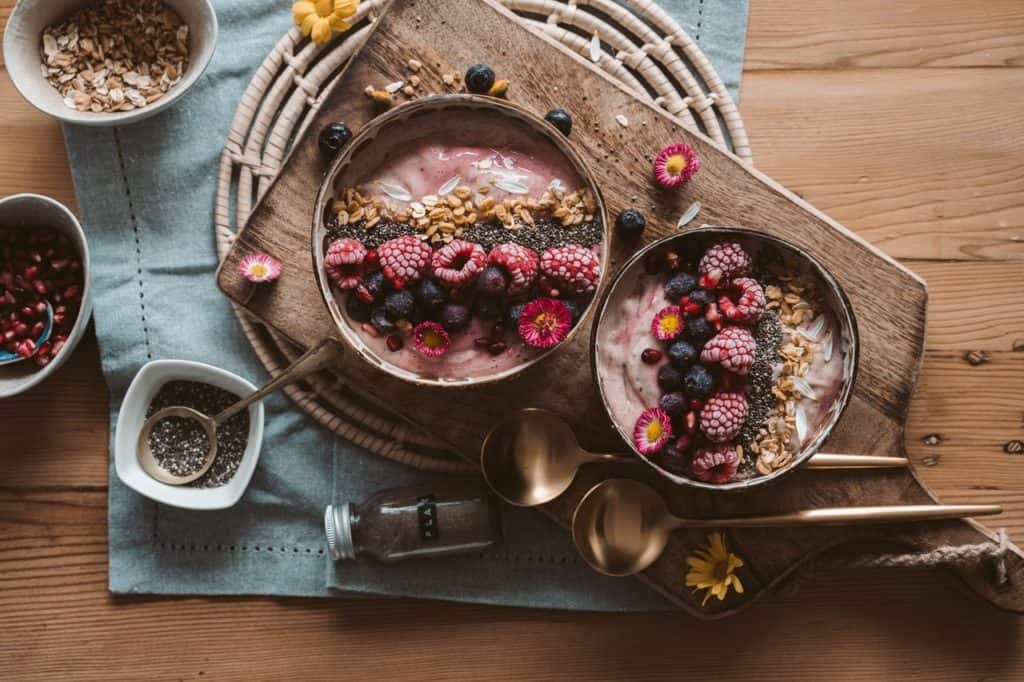
What Plant-Based Drinks Increases Collagen Production?
Collagen production decreases with age and when we have excessive sun exposure. A great way to minimize the damage is to drink beverages rich in catechins, a compound that prevents sun damage by being photo-protective.
Drink green tea; matcha green tea is incredibly nutrient-dense, as is raw cacao powder. These all contain catechins, have incredible health benefits, and have properties that aid in collagen production.
- BUY Green Tea
- BUY Matcha green tea
- BUY Raw cacao powder
Add green tea to smoothies if the taste is too bitter, or cook rice and vegetables. You can add Matcha powder to smoothies, juices, or hot milk, slightly sweetened. Raw Cacao is fantastic as a chocolate substitute for baking; it also makes rich, dense hot chocolate and is great to keep on hand when craving chocolate.
Green tea and Cacao have tremendous benefits for the skin. Learn more by reading here.
One of the best ways to promote collagen is with plant-based supplements. These are superb compliments to a healthy plant-based diet.
- Buy this: Your Super Plant Collagen Powder – this collagen creamer alternative helps support skin health and hydration. It is a plant-based superfood containing organic Pea Protein, Aloe Vera, and Lucuma Powder – Non-Dairy.
Get this excellent creamer to promote collagen and preserve the skin’s health. Add it to hot drinks and smoothies!
- BUY: Moon Juice – Collagen Protect – Vegan Alternative Collagen Powder Supplement – Organic Silver Ear Mushroom, Organic Tocos & Hyaluronic Acid – Non-GMO, Gluten-Free (4.5oz, 16 Servings)
Blend with coffee, tea, smoothies, or the milk in your cereal to support healthy skin, hair, and nails!
Tips To Naturally Preserve And Maintain Collagen.
Eating a diet rich in plant foods is a great way to ensure you give your body the best chance to maintain its collagen levels. If this concerns you as you age, there are other ways to ensure you are not contributing to diminishing levels.
- Limit alcohol intake
- Avoid excessive sun exposure
- Prioritize sleep
- Avoid sugary foods and refined carbohydrates.
You can maximize the body’s ability to produce collagen while eating a plant-based diet with the many collagen supplements on the market that are not derived from animal parts. Look for creamers, powders, gummies, and tablets that may fill dietary gaps.
This post contains affiliate links. We may earn a small commission if you purchase through these links; your sale is unaffected.
Glowitgreen.com is a member of the Amazon affiliate link program.
